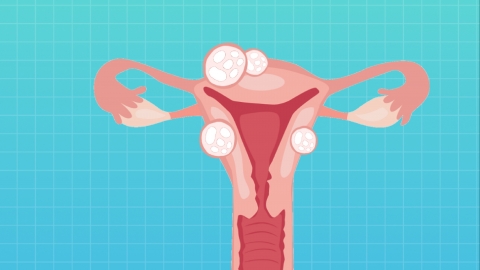What should not be eaten with uterine fibroids?
Generally, patients with uterine fibroids should avoid consuming royal jelly, Ejiao (donkey-hide gelatin), snow frog (snow hare essence), soy isoflavone supplements, longan, and should also cautiously use medications such as estradiol valerate tablets, conjugated estrogen tablets, nylestriol tablets, diethylstilbestrol tablets, and progesterone soft capsules. Detailed explanations are as follows:
I. Foods
1. Royal Jelly
Royal jelly contains natural estrogen components. The growth of uterine fibroids is associated with estrogen levels in the body. Consuming royal jelly increases estrogen levels in the body, which may stimulate fibroid growth and worsen the condition, making it unfavorable for fibroid control.
2. Ejiao (Donkey-hide Gelatin)
Ejiao is a nourishing food that, although beneficial for blood replenishment, has a rich and greasy nature. Some Ejiao products may contain estrogen-like substances. Excessive consumption might disrupt hormonal balance in the body, potentially promoting fibroid growth. Therefore, it should be avoided as much as possible.
3. Snow Frog (Snow Hare Essence)
Snow frog contains animal-derived estrogen. Once ingested, it elevates estrogen levels in the human body. Estrogen promotes the proliferation of uterine fibroid cells, leading to an increase in fibroid size and worsening symptoms such as menstrual irregularities and abdominal pain.

4. Soy Isoflavone Supplements
Soy isoflavones exhibit plant estrogen activity. While moderate consumption of soy products in daily diet has minimal impact, concentrated soy isoflavone supplements can enhance estrogenic effects in the body, potentially stimulating fibroid growth. Therefore, these supplements are unsuitable for patients with uterine fibroids.
5. Longan
Longan is warm in nature and has nourishing properties. Excessive consumption may cause hormonal fluctuations in the body. For patients with hormone-sensitive uterine fibroids, this may indirectly promote fibroid growth and may also exacerbate symptoms such as heatiness and menstrual irregularities.
II. Medications
1. Estradiol Valerate Tablets
This is a synthetic estrogen medication primarily used to supplement estrogen deficiency. When taken by patients with uterine fibroids, it directly elevates estrogen levels in the body, stimulating fibroid tissue growth, increasing fibroid size, worsening the condition, and should be strictly avoided unless medically necessary.
2. Conjugated Estrogen Tablets
These tablets contain natural estrogen components and are used to treat conditions associated with estrogen deficiency. When used by patients with uterine fibroids, estrogen acts on fibroid cells, promoting fibroid proliferation, which may lead to increased menstrual bleeding and worsening of fibroid-related pressure symptoms.
3. Nylestriol Tablets
This is a long-acting estrogen medication that exerts continuous estrogenic effects after metabolism in the body. It promotes the growth of uterine fibroids, increases fibroid size, and may also increase the risk of malignant transformation. Patients with uterine fibroids should strictly avoid its use.
4. Diethylstilbestrol Tablets
This is a traditional estrogen medication with strong estrogenic activity. It can directly stimulate the growth of uterine fibroids, potentially causing rapid fibroid enlargement and resulting in severe discomfort such as abdominal pain and menstrual irregularities. Patients with uterine fibroids must not use this medication.
5. Progesterone Soft Capsules
Although this is a progestin medication, it may be used for fibroid-related treatment under certain conditions. However, when not medically indicated, its use may disrupt the body's estrogen-progesterone balance, indirectly promoting fibroid growth. Therefore, its use must strictly follow medical advice, and self-administration is prohibited.
In daily life, patients should maintain a light diet, regular作息 (作息 should be translated as "作息" in English, but here it means "routine" or "lifestyle habits"), avoid staying up late and excessive fatigue. If fibroid enlargement or worsening symptoms occur, timely medical consultation is necessary to develop a treatment and dietary plan under a doctor's guidance.








